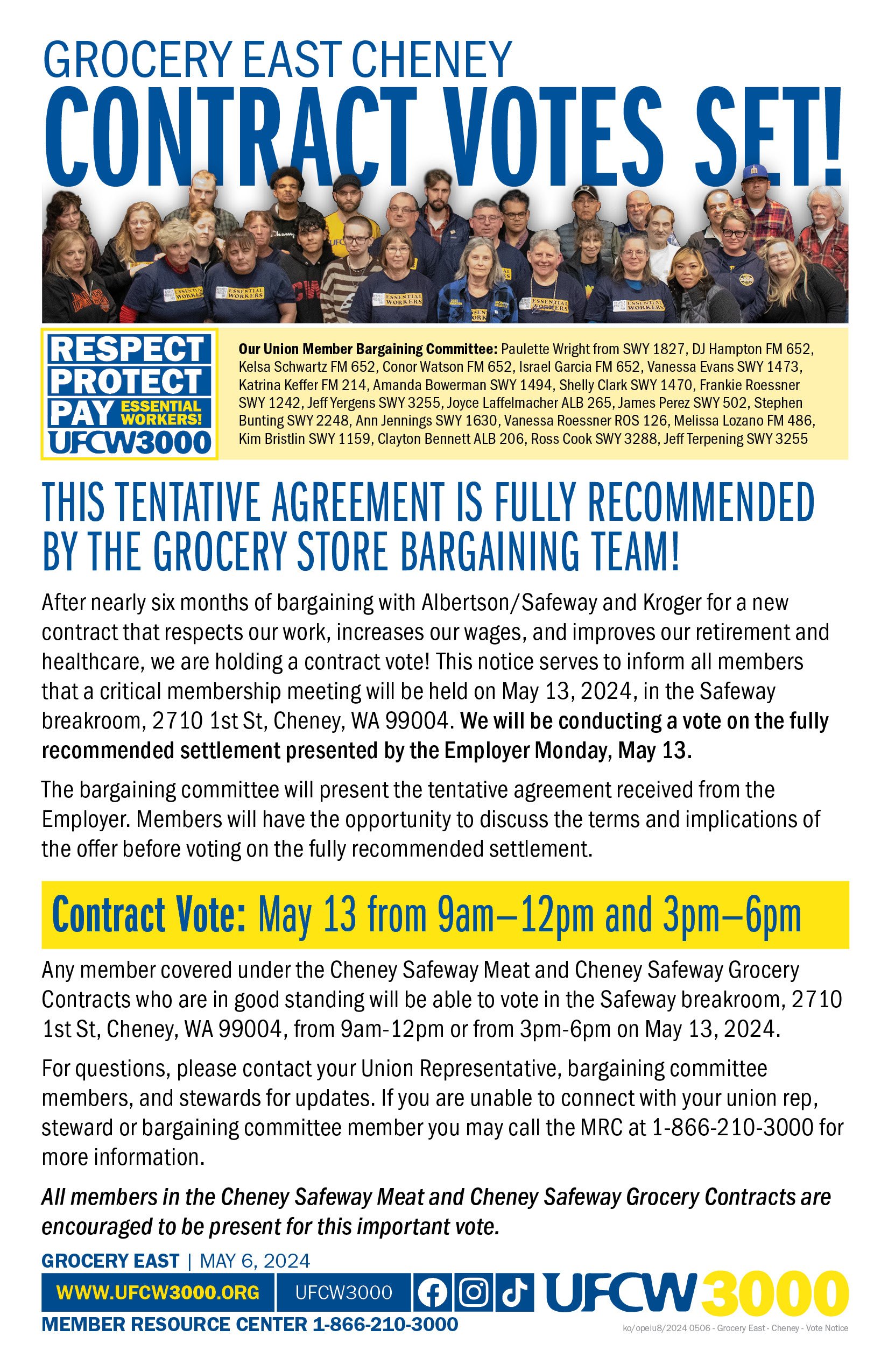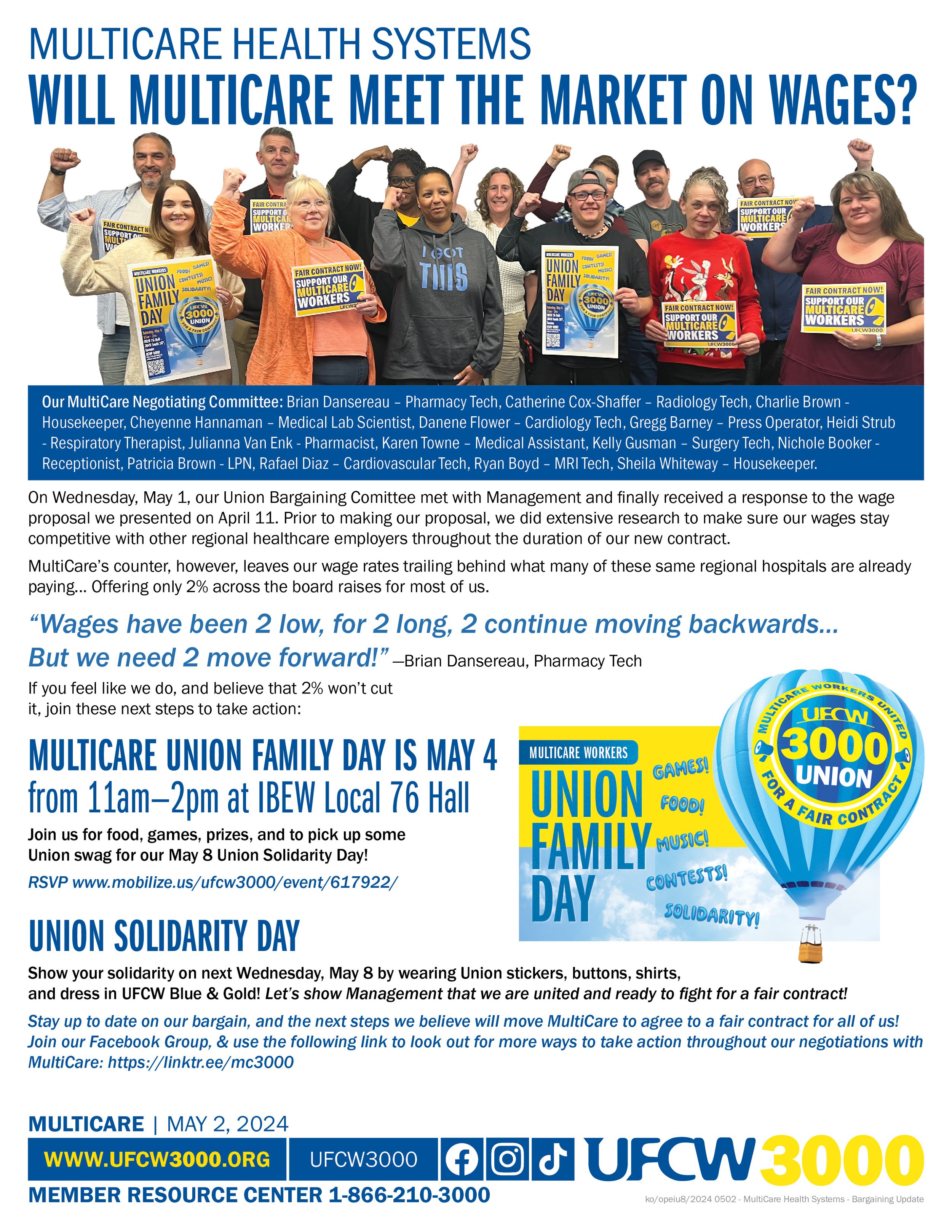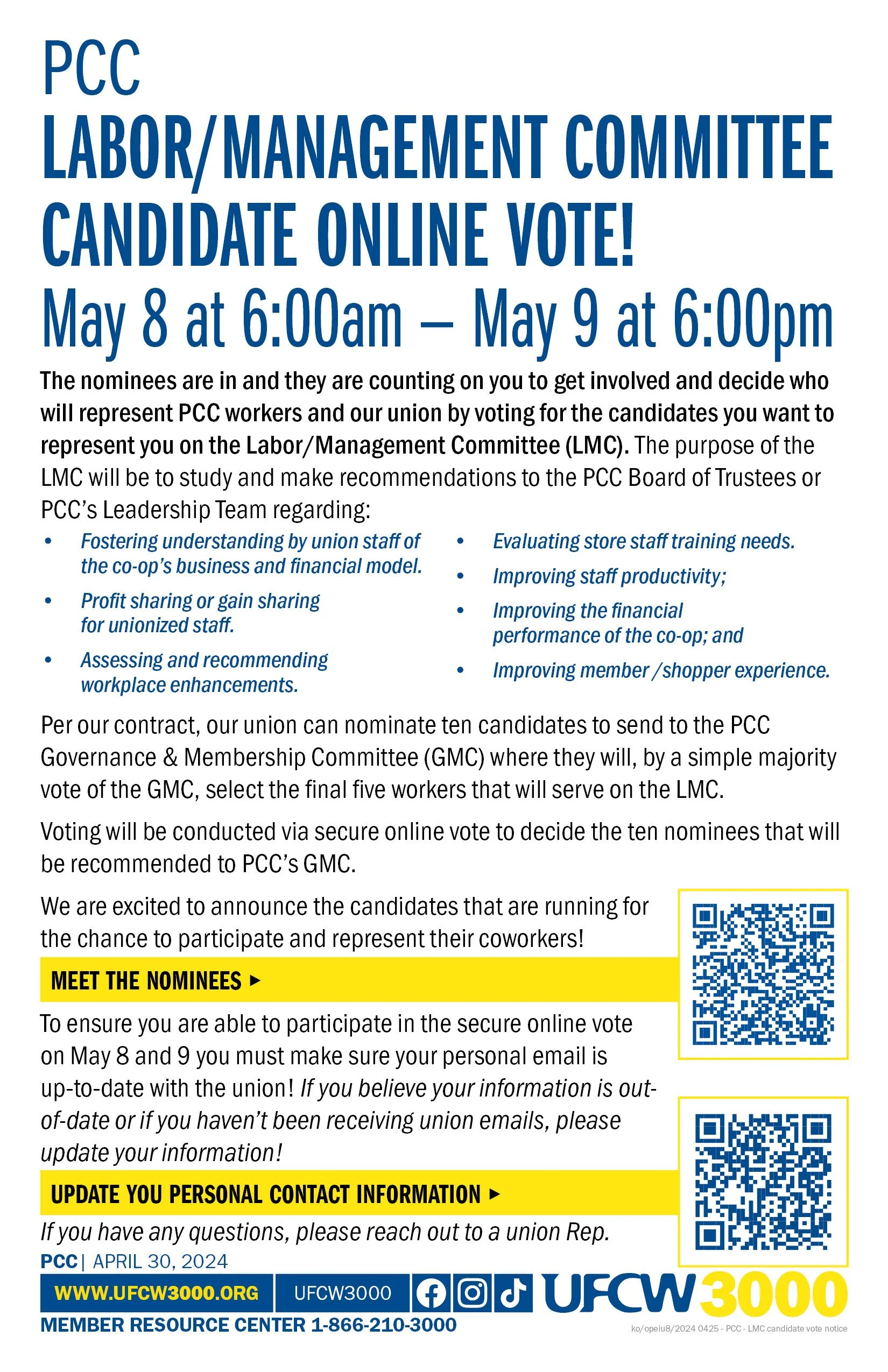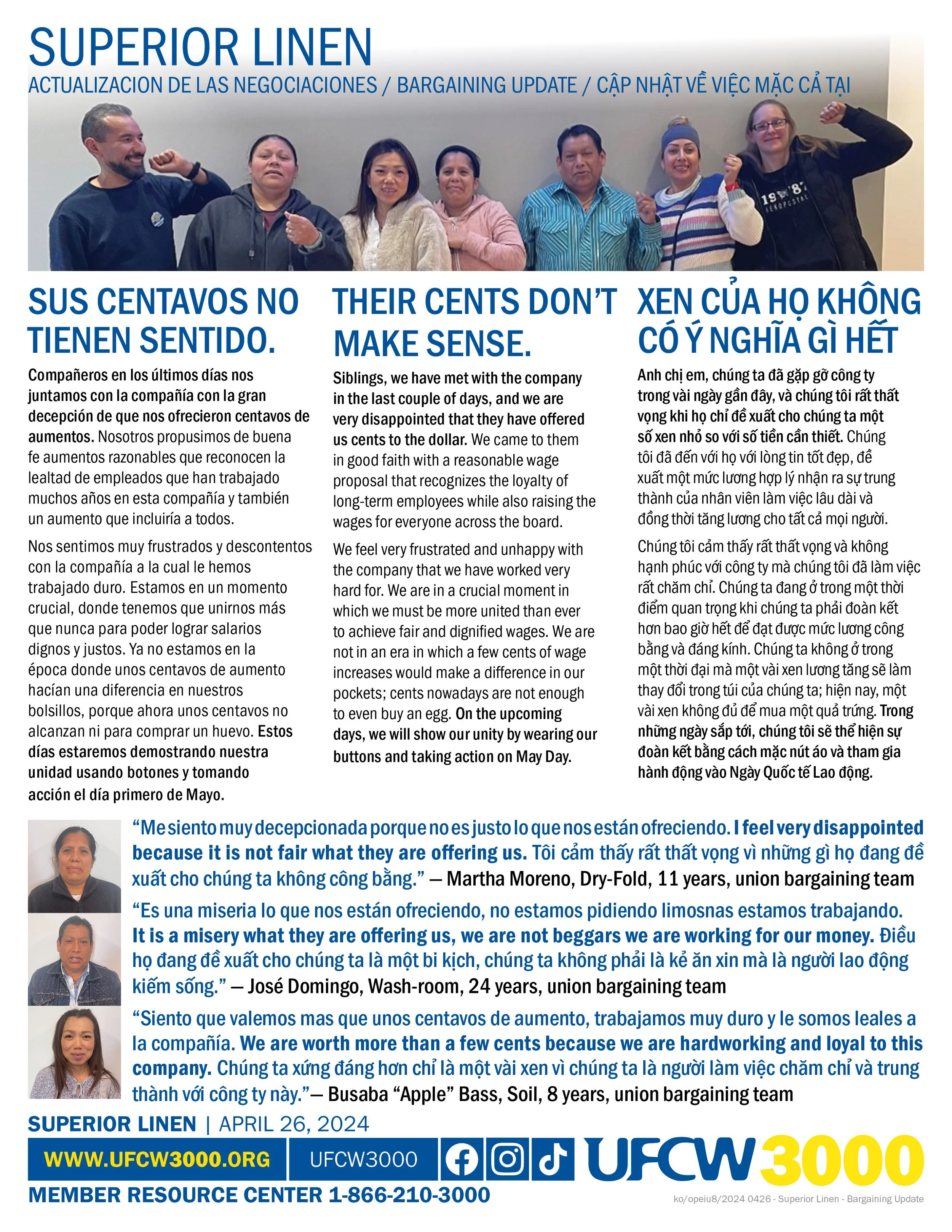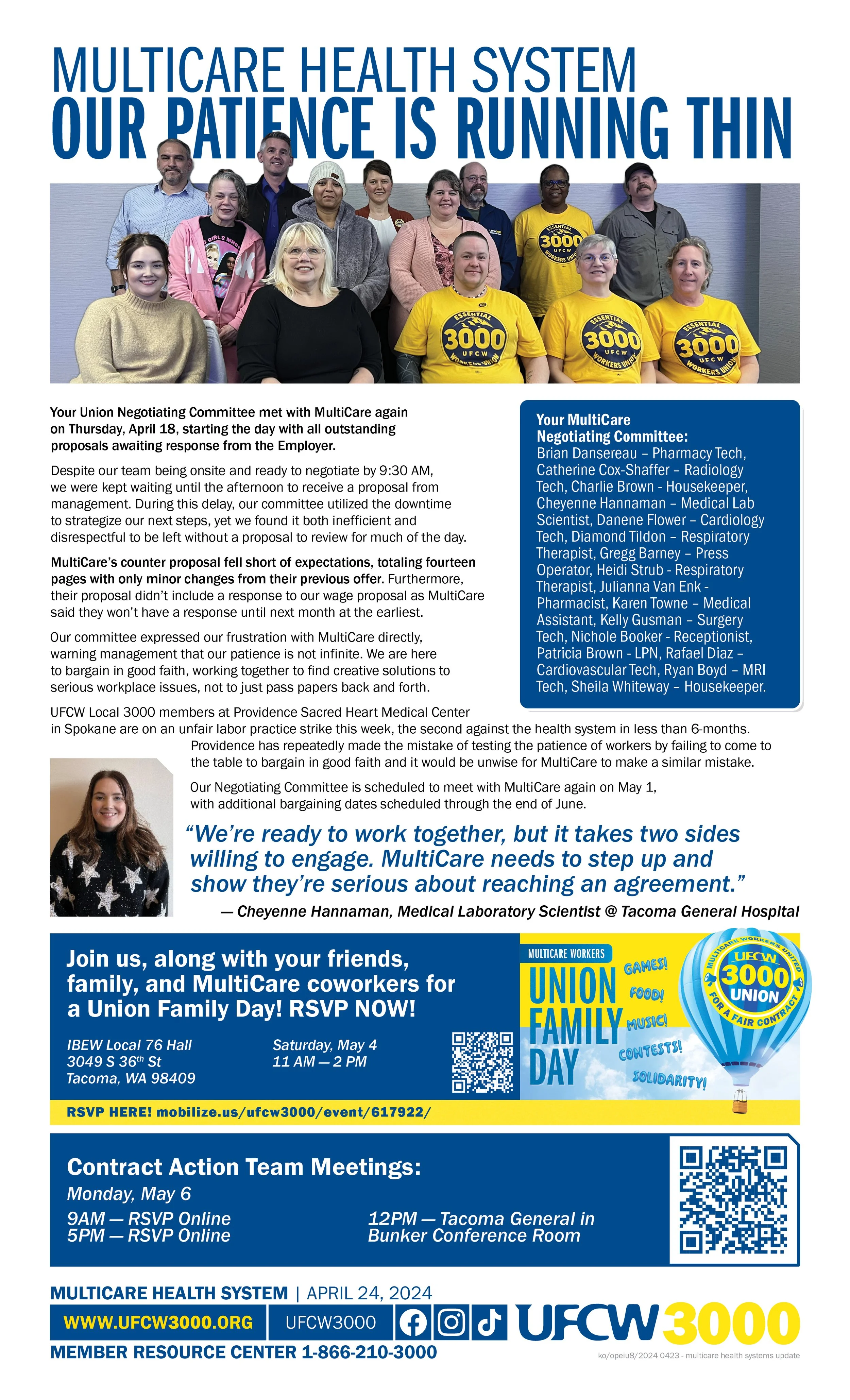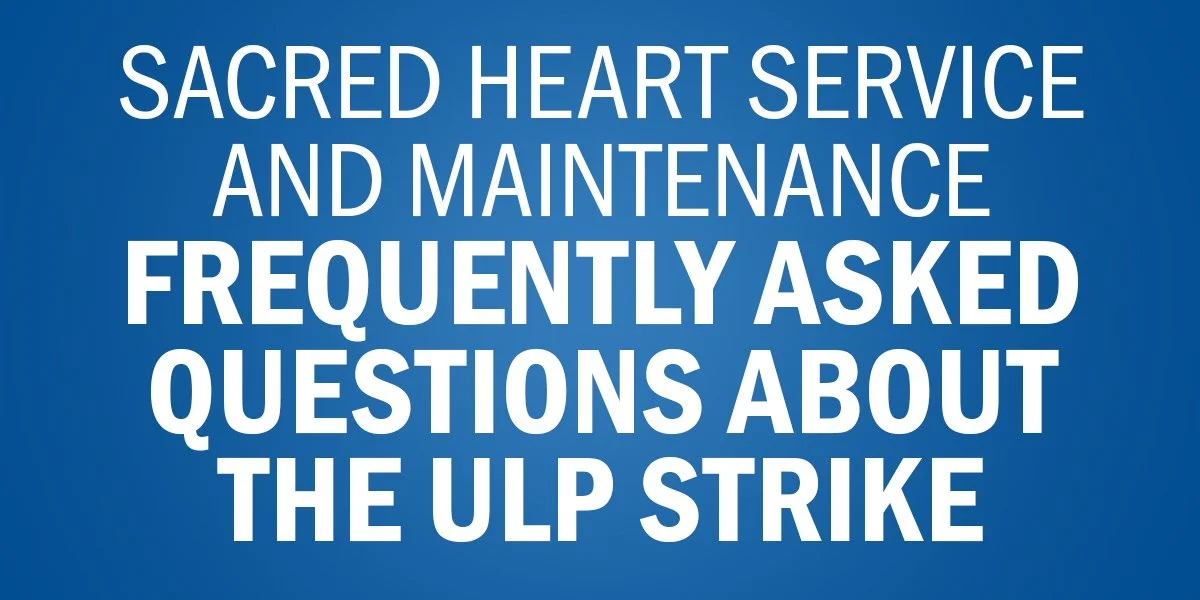Governor Signs Worker Protection Bill Championed by UFCW 3000 Grocery Store Workers into Law
/OLYMPIA, WA – This morning, Governor Inslee signed into law Senate Bill 6007, a bill intended to protect grocery store workers and communities from the negative impacts of corporate megamergers in the grocery industry. Drafted in response to the news that grocery giants Kroger (owner of Fred Meyer and QFC) and Albertsons/Safeway are threatening to merge into one huge company, ESSB 6007 saw enormous support from local Washington grocery store workers and community allies, who advocated throughout the legislative session for its passage.
“As I explained to legislators, we’ve already learned the hard way through past grocery chain mergers about the upheaval it causes for workers and shoppers when these chains merge and close or sell off neighborhood grocery stores,” said Yasmin Ashur, a UFCW 3000 member and checker at the Port Orchard Albertsons who testified in support of the bill and was on hand to see the governor sign it today. “We saw it in Port Orchard with the Albertsons/Safeway merger not that long ago. I am so proud to say I stood up with my fellow workers and helped pass legislation that will help protect our jobs.”
This new legislation puts in place basic guidelines for large grocery stores when they change hands, like in an acquisition or merger, to ensure that essential food workers’ lives and our communities’ access to food and household necessities are not thrown into chaos. It requires public notice of new ownership, a period of job protection or re-hire for eligible current employees, protection of current working conditions and collective bargaining agreements, and mandatory engagement with local government if a merger would cause the closure of a store in an existing food desert.
“The difference between unemployment caused by a pandemic and job loss caused by corporate buyouts is that the potential harm of a merger is foreseeable,” said Britt Leggett, a UFCW 3000 member and deli clerk at the Fred Meyer in the Ballard neighborhood of Seattle who also testified in support of the bill and attended the bill signing today. “That’s what this legislation seeks to remediate: to help workers keep their jobs and seniority when their stores changes owners. The law also ensures that constituents will be served by grocery workers who they know well, who have the skills to do their jobs, and follow the health rules to keep food safe.”
Hundreds of grocery store workers with UFCW 3000 across the state sent messages to lawmakers encouraging the passage of SB 6007, and some traveled to Olympia to meet lawmakers in person.
“It’s a big sacrifice for everyday working people to take time out of their busy lives to try and engage with the local political process,” said Joe Mizrahi, Secretary Treasurer of UFCW 3000. “But being in a union means we can share the load, work together, and make real change that impacts entire industries.”





